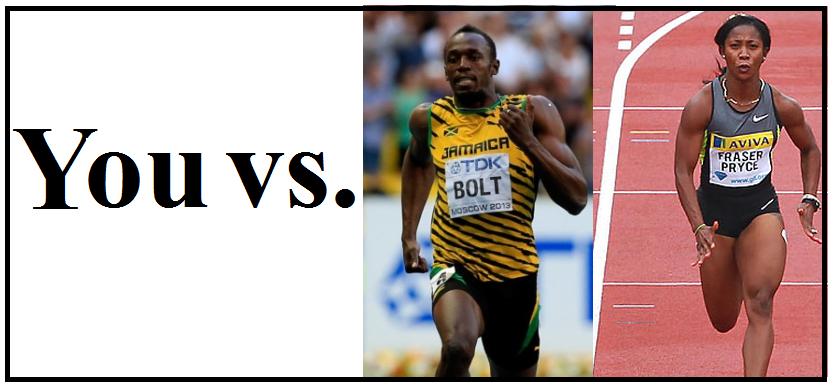A - It certainly could be. Sometime ago I wrote the following blurb which addresses this subject:
~~~~~~~~~~~~~~~~~~~~~~~~~~~~~~~~~~~~~~~~~~~~~~
Ever wondered how your speed accurately compares to the world’s top sprinters?
Now, if you're runner who strictly runs in 5 km. and longer road races, you may question the value of one’s 100 metre capability. Well, trust me, it’s a very important parameter for anyone having specific time goals.
After all, common sense will tell you that your basic speed capability is the ultimate determinate of how fast you can run for any longer distance.
In fact, there is an inter-relationship between basic speed and what you can run for any distance... obviously you can’t run a 5 km. or a marathon at a pace faster than what you can run for 100 metres - so there's a minimal level of basic speed required over shorter distances in order to have a chance of being capable of achieving any specific goal at longer distances.
For example, in order to run 25:00 for 5 km. you should be capable of about 21 seconds for 100 metres. (BTW, I talk about the inter-relationship between the 400 metres and the 1 mile in one of my Audios, here. )
Knowing the inter-relationships provides me an important guide when designing a client's training.And a main reason to cautiously include hill training, fast short intervals, weight training, plyometrics, etc., in a program is to insure that the level of power/speed is developed to anecessary level.
Of course, having the pre-requisite speed doesn't insure you can run the long distance goal. Even Usain Bolt would not come close to running a 4 minute mile unless his training adequately addressed the development of other running fitness parameters, e.g.aerobic capacity.
On your marks....

 RSS Feed
RSS Feed
